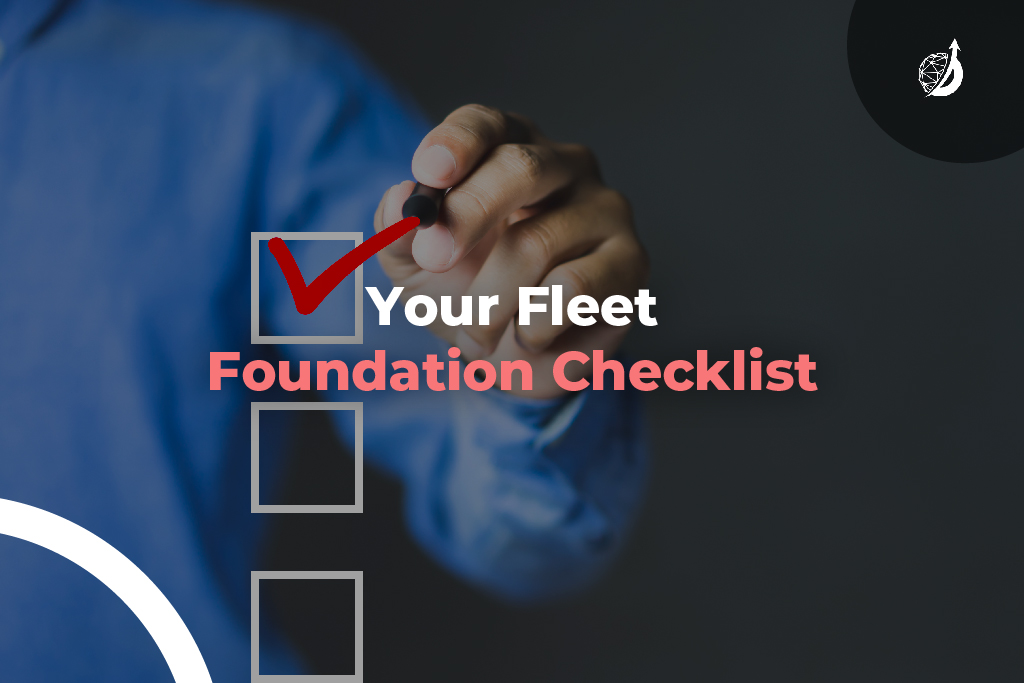Your Fleet Foundation Checklist

Fleet management systems. Telematics. GPS. Data from numerous sources. As technology continues to move fleet management forward, managers have to oversee more moving parts than ever in their quest to optimize their total cost of ownership (TCO). But managers are also being challenged to do more with less. In this market dynamic, it’s essential to separate the “nice to have” elements of fleet management from the “must haves”—the ones that truly optimize your costs and boost your bottom line.
We’ve developed this fleet foundation checklist to help you quickly identify six essential elements of your fleet management operations. Whether you’re just launching a new fleet or are revisiting your approach in 2021, consider this your quick guide to “must have” components of a savvy, optimization-minded program.
- Fleet Management System: Today’s fleet managers have access to more data, from more sources, than ever before. To make the most of your fleet data (and streamline analysis), it’s critical to have a single fleet management system. These systems will help you integrate your operational and financial data, quickly pull critical reports, and gain a “full picture” view of your TCO and overall fleet efficiency.
- An End-to-End Strategy: Your fleet management strategy should incorporate all the major stages of a vehicle’s lifecycle: acquisition, operation (maintenance, fueling, safety and compliance) and remarketing. By taking this end-to-end approach, you can identify more areas for cost savings and ensure that you maximize efficiency at every stage. The decisions you make during acquisition, for example, can impact not just your operational costs, but the value you reap during remarketing. Timing is also key. When you use the vehicle lifecycle as the foundation of your strategy, you can ensure that you make the best possible decisions not just for a vehicle’s current status, but for its overall TCO.
- Collaboration Framework: This might sound obvious, but it’s critical to establish a strong framework for communication and collaboration. It starts with alignment across all key parties. At Onward, we think of the Fleet Department or Manager, Leadership and Operations as three legs of the stool. When all parties are on the same page, you’re on solid footing. But when one function is unclear, the stool quickly begins to wobble. A consensus isn’t possible in every circumstance, but by establishing open, frequent and honest communication, you can understand all parties’ perspectives and secure the strongest possible foundation.
- Mechanism for Capturing Driver Feedback: When you’re busy managing a fleet, it’s easy to overlook the importance of driver feedback. However, the drivers are the customers, and they need to be treated as such. Establish a mechanism for capturing driver feedback annually or, ideally, more frequently. Remember that drivers are often using their vehicles to generate revenue for the organization, and their insights can help uncover more opportunities to lower your costs.
- Process Documentation: In fleet management, every second of downtime or wait time represents lost productivity. Establish an agreed-upon process to keep things moving swiftly. This is especially important for vehicle replacement and both preventative and emergency maintenance.
- Fleet Policy: The word “policy” likely brings to mind tedious, time-intensive work. But a fleet policy is essential to ensuring accountability—and accountability is essential to a well-run fleet. By taking the time to create your fleet policy now, you can avoid unexpected costs and headaches down the road.
- Fleet Management Partner: If your program is lacking one of the essential elements above—or other cost-savers such as fuel programs and safety technology—consider adding a fleet management partner to your “must have” list. High-quality fleet management companies will provide flexibility to meet your true needs: either supplementing your in-house capabilities or providing end-to-end management, depending on what’s best for your business. When seeking out a partner, prioritize a team that takes a comprehensive approach to spotting inefficiencies. And because no two fleets are the same, the ability (and willingness) to craft customized solutions is critical.
Does your organization need help setting a strong foundation for fleet operations? Could you benefit from an expert partner that identifies opportunities for optimization and lowering your TCO? Do you need to craft an end-to-end strategy or secure a more cost-effective maintenance program? No matter your needs, Onward’s team is here to help. It’s not too late to make 2021 your fleet’s most successful year yet. Contact us to start the conversation.
